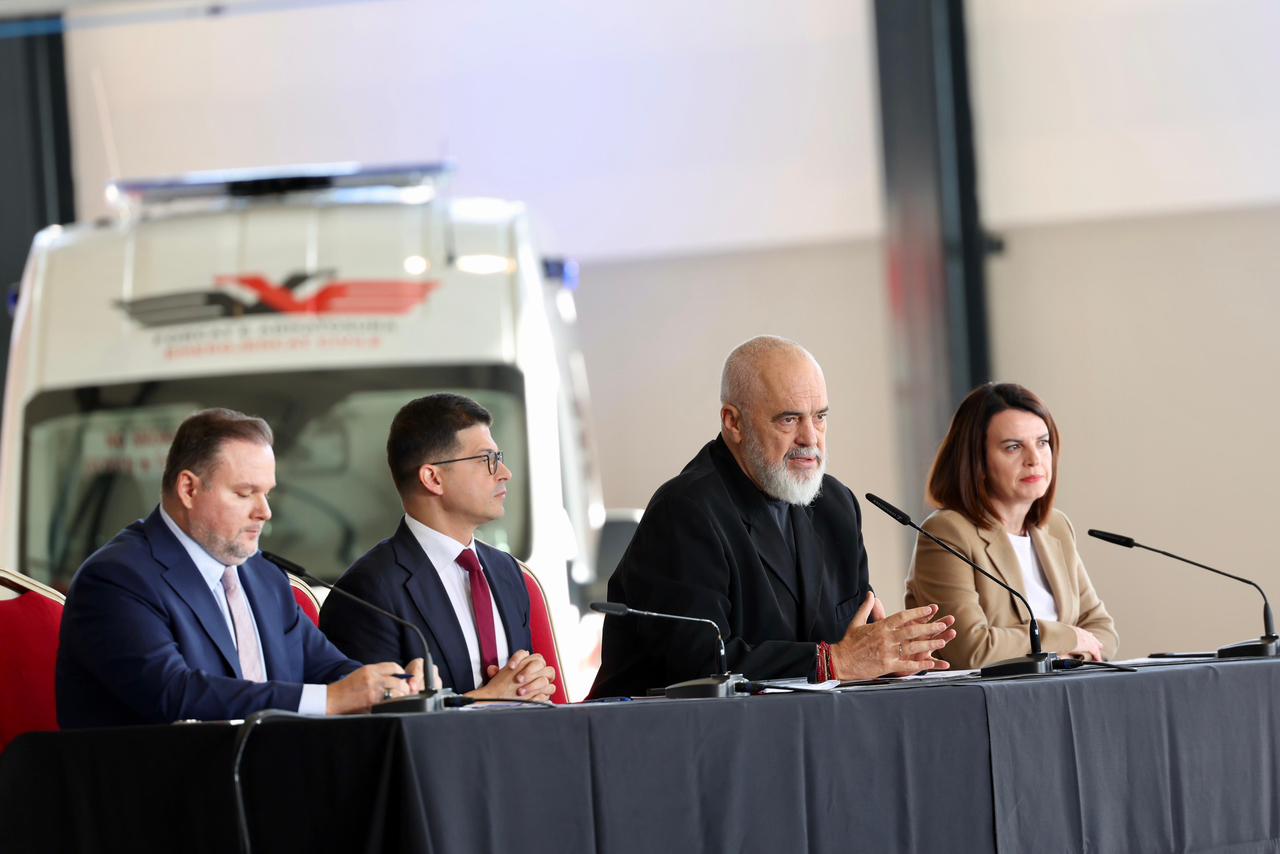Minister Koçiu Presents Reform to Modernize National Firefighting Service Under a Unified Command
The government presented a reform plan to modernize the National Firefighting Service and strengthen its capacity to respond to national emergencies and large-scale fires. Minister of the Interior Albana Koçiu stated that the government program for the current term will focus on establishing a Central Command and a National Training Center for Firefighters and standardizing the recruitment process for service employees.
Over the past ten years, the number of firefighting personnel has grown from 739 to more than 1,400, and the fleet of vehicles has expanded from 100 to 185, including some of the most modern units. The minister noted that, although the service has improved significantly at the local level, it still requires reorganization based on the best international models and a revision of the legal framework.
She pointed out that the current firefighting service is fragmented with overlapping institutional roles, which makes a unified response difficult. Additionally, coordinating with the European Emergency Response Coordination Center (ERCC) requires a single decision-making structure.
The new model establishes a unified command to coordinate operations, enhance inter-institutional and international cooperation, maximize the efficient use of funds, and ensure effective coverage throughout the country.
The reform puts firefighters at its core by standardizing recruitment and creating a National Training Center where personnel will earn qualifications that align with European standards and undergo periodic training. The plan also includes incentive programs offering financial benefits and career advancement opportunities.
Another pillar of the reform is public education campaigns on fire safety, beginning in schools and extending to all communities. In parallel, technology and innovation will enable real-time reporting of emergency situations.



